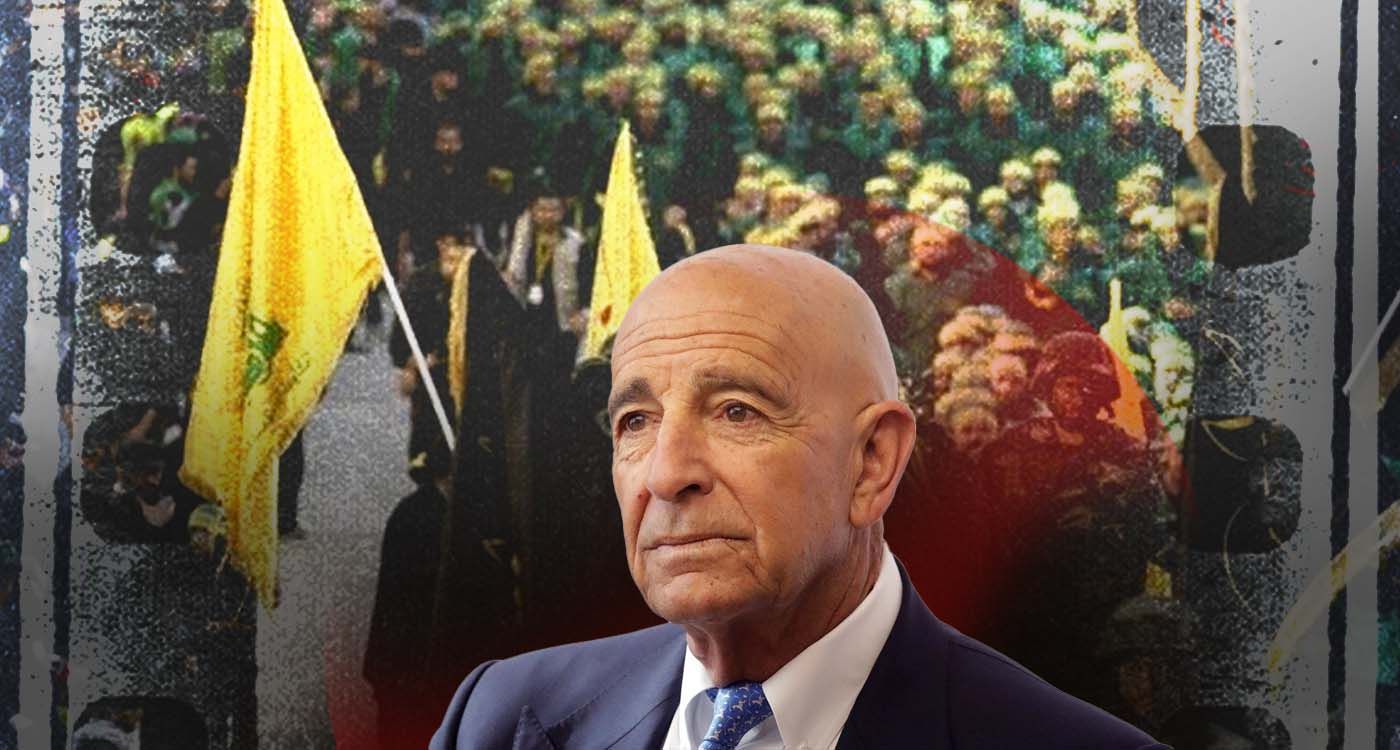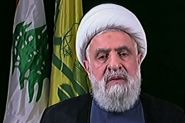
According to Lebanese sources, the anticipated response to the message conveyed by US envoy Tom Barrack regarding the disarmament of Hezbollah is expected to align with what Barrack stated in an interview with The New York Times, specifically the application of a carrot-and-stick approach toward the group.
Lebanon's official response, however, remains unsettled, as Hezbollah has yet to submit its feedback on the draft proposal. Barrack is expected to be briefed on the latest developments during his meetings in Beirut on Monday with President Joseph Aoun. He is also set to meet Speaker of Parliament Nabih Berri—Hezbollah’s main liaison—as well as Prime Minister Nawaf Salam.
Hopes are high that the current draft may evolve into an official response once Hezbollah’s input is incorporated. However, Hezbollah appears to be engaging in tactical brinkmanship. It might either delay submitting its reply until Barrack arrives in Beirut or refrain from responding claiming it needs more time to review the document. In either case, Hezbollah seems to be betting on the likelihood that a finalized Lebanese response would be acceptable to the US envoy.
Nevertheless, sources also voiced concern about Israel’s increasingly hardline stance and the possibility of outright rejection—especially since Israeli Prime Minister Benjamin Netanyahu is expected in Washington on Monday for a meeting with President Donald Trump, where the Lebanese file will reportedly be on the agenda.
Meanwhile, several possible scenarios are being considered regarding the US envoy’s response: the Lebanese reply could be either accepted as is, sent back with requests for amendments, or rejected outright.
Should the US approve the document, it will then be submitted to the Lebanese Cabinet. However, the matter will not be discussed at the Cabinet level unless the US first gives its green light. If the Americans request modifications, Cabinet deliberations would likely be postponed until further notice.
An outright rejection, on the other hand, may signal a premeditated plan by Israel to escalate its military pressure on Hezbollah, possibly forcing the group into total capitulation. Sources fear that Barrack’s visit to Beirut, coinciding with Netanyahu’s meetings in Washington, could be accompanied by a surge of Israeli airstrikes.
The most crucial point in the Lebanese draft response remains unanswered: Will Hezbollah relinquish its weapons?
If Hezbollah responds affirmatively, government insiders say Beirut will stress that disarmament cannot come free of charge. Each concession, they argue, must be met with concrete, reciprocal steps—chief among them firm US guarantees that translate into action on the ground: an Israeli withdrawal from remaining occupied territories, a halt to assassinations, and an end to airstrikes.
For now, the Lebanese government continues to avoid labeling Hezbollah as a “militia”—a term the US insists on using. Ambiguity also surrounds Lebanon’s official position on dismantling Hezbollah’s security infrastructure and halting all related activities. Equally unclear is Beirut’s stance on dismantling Hezbollah’s economic apparatus, most notably the al-Qard al-Hassan Association.




Comments